Premium Only Content
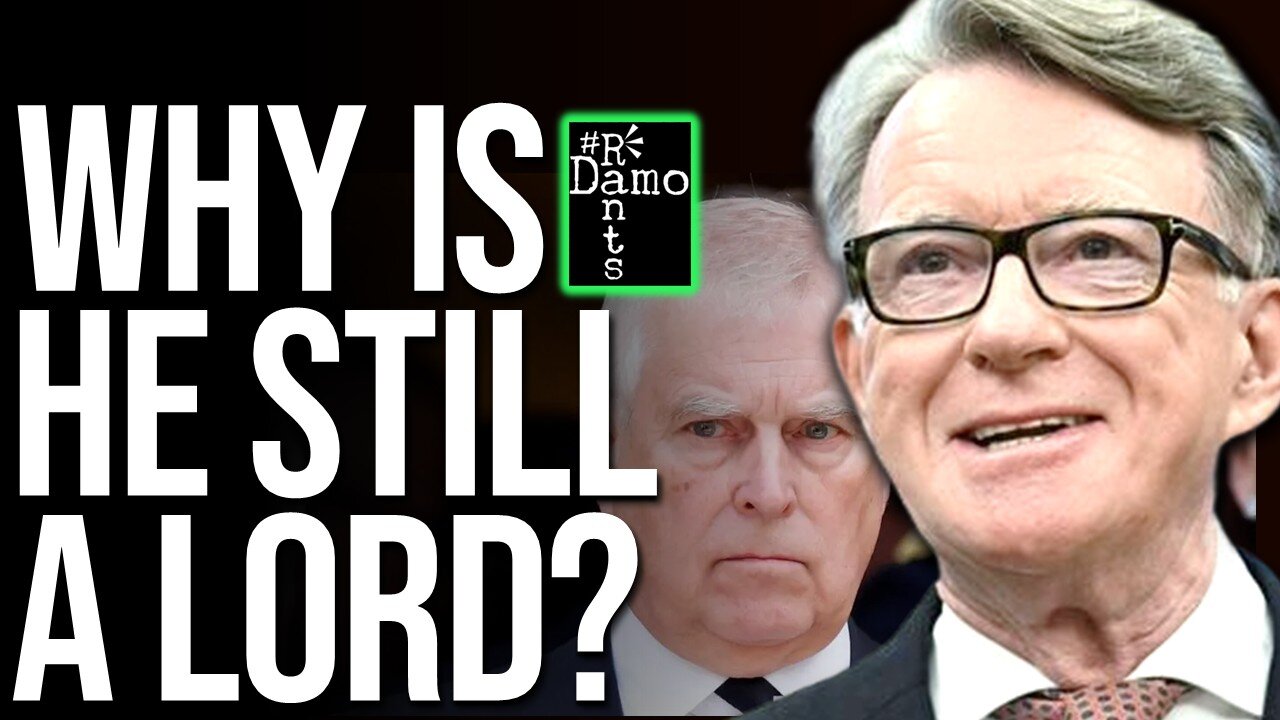
Prince Andrew Gets Destroyed Over Epstein, So Why Not Mandelson?
Right, so Prince Andrew’s out — stripped, erased, repackaged as Andrew Mountbatten-Windsor — the royal family finally admitting what everyone else already knew: he was a liability they couldn’t spin their way out of anymore. The King swung the axe, all titles gone, Royal Lodge soon to follow. And yet Peter Mandelson, who spent his own holidays in Jeffrey Epstein’s company and wrote “my best pal” in the man’s birthday book, still floats serenely through Westminster as Lord Mandelson. That’s the state of British morality in one picture: a monarch of all people playing moral referee while an elected government hides behind procedure to avoid doing likewise with Mandelson. Andrew loses his titles to save the brand; Mandelson keeps his but why?
One rule for royals, none for Starmer’s sort? And presumably Starmer’s fine with that in spite of everything.
Right, so when even the monarchy is more willing to cut loose its own than the government, you know the country has rotted from the inside out. On 30 October Charles signed off on the removal of every title and honour that still tied Prince Andrew to the institution that raised him. Buckingham Palace confirmed that he would now be known as Andrew Mountbatten-Windsor. The phrase carried quiet violence. His style “His Royal Highness” was gone. His right to call himself Prince was gone. The Duke of York, the Earl of Inverness, the Baron Killyleagh — all set aside, pending the legal wash-through that will eventually return them to the Crown. The same week, palace aides briefed that he would vacate Royal Lodge in Windsor and move into private accommodation. For a family that measures itself in continuity, that was a decapitation.
No one pretended it was an act of morality in the biblical sense. It was self-preservation. The Firm was circling the wagons. The monarchy’s entire business model is moral appearance. When that collapses, the brand dies. After years of pressure — the BBC interview, the Virginia Giuffre lawsuit, the settlement that cost roughly £12 million — Charles finally did what the late Queen had only half done. Back in 2022 she had stripped Andrew of his military titles and royal patronages, but left him cloaked in his birthright. That was never enough to appease the public, especially as this case has never gone away, so Charles finished the job. For the first time since the abdication of 1936, a senior royal was formally un-royalled while still alive and in line to the throne.
That’s the constitutional part. The political part is what it says about Britain. Because at the same time as the monarchy was amputating a limb to save itself, the government — the one that likes to talk about integrity and restoring faith in public life — was still sheltering a man whose own documented friendship with Jeffrey Epstein stretches back decades.
Peter Mandelson has never been accused of sexual offences. That needs saying plainly. But he was deep inside Epstein’s circle. His name appeared at least ten times in Epstein’s 2004 address book. He stayed at Epstein’s homes in New York and in the Caribbean. He took two flights paid for by Epstein in 2003, neither of which he declared. He wrote “my best pal” in Epstein’s birthday book — his own handwriting, confirmed in photographs published and reported on back in July. When the story resurfaced again this autumn, the media quoted Mandelson expressing “deep regret” for the association. He admitted that he had maintained contact even after Epstein’s first conviction in 2008.
Those are facts on record, not gossip. They’re also facts that have already cost him abroad. In the United States, after the renewed disclosures, Mandelson lost his ambassadorial role and his consulting/advisory firm began removing him from its board/shareholding following the disclosures. Yet in Britain, he remains Lord Mandelson, still a life peer, still moving in and out of the Prime Minister’s orbit.
So we have a contradiction here that surely needs resolving then don’t we? One man born to privilege loses everything because his presence endangers an unelected monarchy’s legitimacy. Another man, elevated by political patronage, keeps every privilege he’s ever been given — including a lifetime seat in the legislature — because his presence strengthens an elected government’s connections to money and media. The difference isn’t evidence. It’s utility. Andrew had become useless. Mandelson is still useful.
What’s useful about him? His network. The donor introductions. The City credibility. The whisper that keeps corporate Britain calm about a Labour government. Keir Starmer didn’t inherit Mandelson by accident; he recruited him. He dug him up from his crypt. When Starmer began the project of sanitising Labour for boardrooms and newspapers, it was Mandelson who helped rebuild the bridge. He is to this Labour government what Alastair Campbell was to Blair’s, but without the daylight. So when Mandelson’s Epstein connection came back into the headlines, Starmer didn’t distance himself. Starmer at the time told reporters there was “no reason” Mandelson should step aside as the UK’s ambassador to the US — and then of course he went.
The monarchy acts on optics; the government hides behind procedure. Charles doesn’t need Parliament to remove a title; Starmer would need Parliament to strip a peerage. But legality isn’t the issue. Will is. The Crown used its discretion because its image was in danger. The government refuses to use its because its power still evidently depends on the man at the centre of the scandal. Why else keep themselves tied to him and tarnished by that?
The legal distinction is clear enough though. A royal title exists at the pleasure of the sovereign; a life peerage exists under statute. The House of Lords Reform Act 2014 allows for resignation, suspension for non-attendance, or removal following criminal conviction. There’s nothing preventing a Prime Minister from sponsoring an amendment or initiating an investigation under those rules. It just hasn’t happened. Not for Mandelson. Not for anyone of comparable standing. The inertia is the point.
What this shows is that the monarchy’s legitimacy is theatrical but disciplined, while the political class’s legitimacy is transactional and self-protective. When the palace is cornered, it stages accountability. When Westminster is cornered, it defers to process that doesn’t get initiated, that they are never pressed on.
Look at the timing. In October the headlines were about Andrew’s titles; in July they were about Mandelson’s friendship with Epstein. Both institutions faced reputational damage within weeks of each other. One chose to cauterise. The other chose to pretend because Britain still runs on hierarchy. The Crown is supposed to be untouchable, yet it fears public disgust. The Lords are supposed to be accountable, yet they fear nothing. The paradox is that the monarchy has to look clean to survive, while the political establishment can survive precisely because it looks like nothing at all — a fog of titles, honours, and “former ministers” moving through think-tanks and banks. Andrew’s disgrace threatens the brand, so he’s erased. Mandelson’s disgrace evidently threatens the supply lines, so he’s protected.
This isn’t new. It’s just visible now. For centuries the British system has used titles not as honours but as insulation. They were created to mark distance between ruler and ruled, then repurposed to launder proximity to power. When the monarchy became ceremonial, the peerage became functional — a holding pen for the political class once they leave office, and a safe house when scandal hits. In that sense, Andrew and Mandelson occupy the same building but different floors. The Crown threw one out of the window to keep its façade clean. The government quietly reinforced the roof to keep the other out of sight.
And it matters beyond symbolism. Because the question isn’t just who keeps their title — it’s who keeps their access. A royal title gets you ceremony. A peerage gets you power. Mandelson’s seat in the Lords gives him a vote on legislation, privileged access to ministers, and a lifetime platform in national debate. Andrew’s title gave him parades. If you strip away the velvet, one man lost a costume; the other keeps a lever.
The double standard is visible to anyone paying attention. It doesn’t rely on conspiracy; it’s printed in Hansard and reported in the business pages. It’s in the donations declared, the consultancies disclosed, the speeches billed at corporate rates. The Crown’s survival mechanism is embarrassment. The government’s survival mechanism is indifference.
What the monarchy did to Andrew wasn’t reform; it was risk management. But it inadvertently exposed how far below even that basic instinct Westminster now sits. Because if a king, operating under no democratic mandate, still recognises that public disgust is lethal, what does it say about a government that doesn’t seem to get that, even as it sits at historic lows in the polls?
At this point, the issue stops being about two men and becomes about structure. The life peerage system was built on the assumption that honour implies integrity. It never accounted for the reality that power outlives shame. There is no sunset clause on a peerage. There is no public recall. The Lords can suspend a member for misconduct, but it requires the Lords themselves to vote for it. Imagine MPs voting to remove their own donors. That’s why it never happens.
And this is where Starmer’s position becomes indefensible. Because even if you accept the legal obstacles, nothing prevents him from setting a political example. He could sponsor a motion calling for Mandelson to recuse himself from party roles pending review. He could state openly that the association with Epstein is inconsistent with public service. He could at least show that Labour understands the appearance of corruption matters. But he won’t. Because Mandelson knows the machinery — the donors, the messaging, the polling architecture, the quiet phone calls to editors. He no doubt also knows where the bodies are buried. To cut him off would be to expose how Labour’s pretence of respectability is built on the same old connections.
So the government hides behind the Crown’s curtain. It lets the monarchy play morality so that Parliament doesn’t have to. The public sees the prince fall and assumes justice works. Meanwhile the political class learns the opposite lesson — that immunity still holds as long as you sit in the right chamber. Unfortunately for them, not all of us are looking the other way.
Half the newspapers covering Andrew’s demotion used the phrase “historic decision.” It was. But not for the reason they think. It marked the moment the Crown looked cleaner than the Commons.
Because once you’ve crossed that line — where monarchy looks more accountable than government — you’re not in a democracy anymore. You’re in a managed state that performs accountability at the top so no one asks for it further down. The palace sacrifices a son to show virtue. The government protects a fixer to preserve function. Between them sits the illusion of order.
Historically, Britain’s titles have always worked that way: as instruments of control, not recognition. They define who can touch power without ever having to answer for it and in that regard, it says a lot about the people who choose to accept them. The Crown used them to bind loyalty; Parliament used them to recycle its own. When people talk about “honours,” they mean insulation. Lord Archer kept his peerage through prison. Lord Ahmed kept his until conviction forced his hand. Each case tested the same question — can disgrace alone remove privilege? — and the answer was no. Until Andrew.
The monarchy’s calculation was simple: reputation or survival. It chose survival. The state’s calculation is different: exposure or control. It chose control. That’s why Mandelson stays. His continued presence tells every donor, lobbyist and minister that the old system still works, still holds its business as usual. One rule for the insiders, a different one for everyone else.
The media plays its role by deciding which scandals count as well doesn’t it? Andrew’s face sold papers; far more than Mandelson’s name. Editors treat his proximity to Epstein as a footnote because they need his quotes, his access, his introductions. Britain’s press doesn’t cover influence; it trades in it.
That’s why Mandelson remains usable. He is fluent in the language of plausible distance — the “friend of a friend,” the “unwise association,” the “regret expressed.” He might as well have written the manual on How to Manage a Corporate Crisis. They exist to close stories, not open them.
Money of course comes into this too. Labour’s rebranding under Starmer depends on corporate confidence. Mandelson is the signal to the City that nothing fundamental has changed. His Lords title isn’t just social decoration; it’s a badge that says the system will still look after its investors. Removing him would frighten the same donors Labour now relies on. So the Prime Minister’s silence isn’t indecision — it’s strategy.
The psychological trick is that the public expects higher standards from the palace than from politicians. We’re conditioned to see royals as moral symbols and governments as necessary evils. That inversion protects Westminster. When a royal falls, it feels like justice; when a politician doesn’t, it feels like politics. The monarchy becomes the country’s conscience by default.
Yet this is lethal for democracy. Because once moral authority migrates from the elected to the hereditary, accountability collapses. Every time the palace acts while Parliament dithers, it teaches the public to look upward, not outward, for integrity. The King becomes the national referee while the government hides behind process. That’s not constitutional monarchy; that’s moral outsourcing.
The legal façade remains intact too. The House of Lords Reform Act 2014 still says peers can be suspended or removed. But the House has no appetite to use it. Since its passage, not one life peer has been expelled purely for reputational reasons. The Lords police themselves with the gentleness of colleagues protecting pensions.
This is how Britain maintains its fiction of accountability: visible punishment for the ceremonial class, invisible immunity for the governing one. The contrast makes the machine look balanced. It isn’t. It’s calibrated.
Look again at the human consequences. Andrew loses his titles, his home at Royal Lodge, his formal identity. Mandelson loses a few board seats in America and keeps his seat in Parliament. The cost of scandal in Britain depends entirely on whether your power is symbolic or structural. The symbolic can be sacrificed; the structural cannot.
Even the language reveals it. The palace “strips” titles. The government “defers” decisions. One verb implies action, the other avoidance. When Starmer tells journalists there is “no reason” for Mandelson to step aside, he isn’t defending innocence; he’s defending hierarchy. He’s saying the rules don’t reach that high.
The deeper pattern runs through British history. The honours system was supposed to fuse merit and service. Instead it created an ecosystem of dependency — courtiers, advisers, donors, lobbyists — all cushioned by privilege. It has never produced accountability; it has produced hierarchy with a moral accent.
This is why every serious reform collapses. Remove hereditary peers, and the life peers close ranks. Talk of abolition, and the Lords threaten “constitutional crisis.” The very idea that a peerage can be permanent in a democracy is absurd, but it survives because it serves the same function it always has: to make inequality look like expertise.
When the Epstein link re-emerged, Mandelson’s defenders called it “old news.” But old news only stays buried when the structure that produced it stays intact. The links were real — confirmed flights, confirmed visits, confirmed messages. The only thing missing was the appropriate level of consequence.
The danger here isn’t one man’s reputation; it’s what his survival proves about the state itself. It shows that moral failure no longer threatens power; it’s priced into it.
Starmer’s government is already brittle. Polls show support sliding after welfare cuts and Gaza. Trust is evaporating. But rather than clean house, it circles wagons. It hides its most compromised ally behind constitutional fog, calculating that voters won’t care. Maybe they won’t — but institutions rot quietly before they collapse publicly.
Compare that to the monarchy’s speed. Charles didn’t wait for an inquiry. He read the mood and acted. The monarchy has centuries of practice in self-defence. Starmer, who sells himself as the restorer of integrity, couldn’t even simulate it.
That’s the real story. A hereditary monarch, accountable to no one, has demonstrated a keener sense of public decency – albeit a very low bar here - than an elected prime minister.
The question now is whether anyone inside the political class recognises the danger. Because this isn’t just hypocrisy; it’s structural inversion. Power is supposed to answer to democracy. Democracy now answers to power. The palace performs morality to keep faith in the state alive. The government performs silence to keep its alliances intact. Between them, the public learns that accountability is selective and punishment is ornamental.
Every system reaches a point where its contradictions become visible even to those it governs. Britain is there. The monarch strips a prince to prove virtue. The prime minister protects a peer to prove stability.
If Labour wanted to prove it was different, it could act tomorrow. Introduce a bill to allow suspension of peers for reputational damage alone. Mandate declarations of past associations with convicted offenders. Announce an independent review of party appointments. It won’t happen. Because reform would break the mechanism that keeps influence flowing.
So the monarchy will go on playing morality theatre, and Westminster will go on treating scandal as weather. Mandelson will stay a lord, Starmer will stay silent, and Britain will stay stuck between theatre and cynicism — a country that punishes symbolism and protects substance.
When history looks back at this moment, it won’t remember the paperwork. It will remember the hierarchy of consequence. Andrew Mountbatten-Windsor lost everything to save a crown. Peter Mandelson lost nothing to save a government. One institution still knows what shame is worth. The other sold it long ago.
Of course not everyone in Labour wises to be tarred by Starmer’s brush as 36 Councillors have walked just this year, as this video recommendation will tell you all about here as your suggested next watch.
Please do also hit like, share and subscribe if you haven’t done so already so as to ensure you don’t miss out on all new daily content as well as spreading the word and helping to support the channel at the same time which is very much appreciated, holding power to account for ordinary working class people and I will hopefully catch you on the next vid. Cheers folks.
-
 LIVE
LIVE
StoneMountain64
1 hour agoArc Raiders is actually INCREDIBLE
84 watching -
 2:03:04
2:03:04
MattMorseTV
4 hours ago $0.54 earned🔴Trump’s EMERGENCY Oval Office ANNOUNCEMENT.🔴
45.1K43 -
 LIVE
LIVE
GrimmHollywood
4 hours ago🔴LIVE • GRIMM HOLLYWOOD and BIG TALL REDNECK • 3K 3XL TAKEDOWN • PGA • BF6 REDSEC • ARC RAIDERS
74 watching -
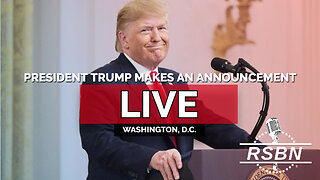 3:11:27
3:11:27
Right Side Broadcasting Network
17 hours agoLIVE REPLAY: President Trump Makes an Announcement - 11/6/25
132K54 -
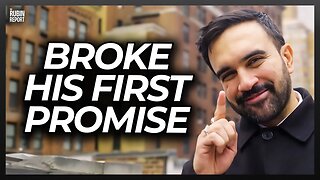 1:04:07
1:04:07
The Rubin Report
3 hours agoZohran Mamdani Humiliates Himself by Breaking His First Promise Only 24 Hours After His Win
74.9K122 -
 1:04
1:04
Steven Crowder
3 hours agoTEASER: Deport All Illegals | Change My Mind
129K504 -
 LIVE
LIVE
Barry Cunningham
16 hours agoBREAKING NEWS: PRESIDENT TRUMP MAKES AN ANNOUNCEMENT!
1,419 watching -
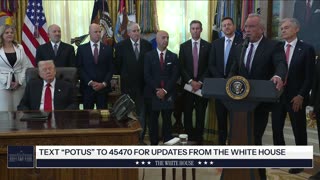 53:52
53:52
The White House
4 hours agoPresident Trump Makes an Announcement, Nov. 6, 2025
23.7K41 -
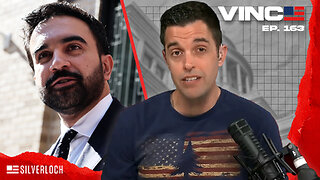 1:02:55
1:02:55
VINCE
5 hours agoThey're Coming For You Next | Episode 163 - VINCE 11/06/25
224K368 -
 1:42:05
1:42:05
Graham Allen
5 hours agoTrump And Vance Show The Path For Winning!!! WE MUST FIGHT! + Erika Kirk Reveals All!
146K43